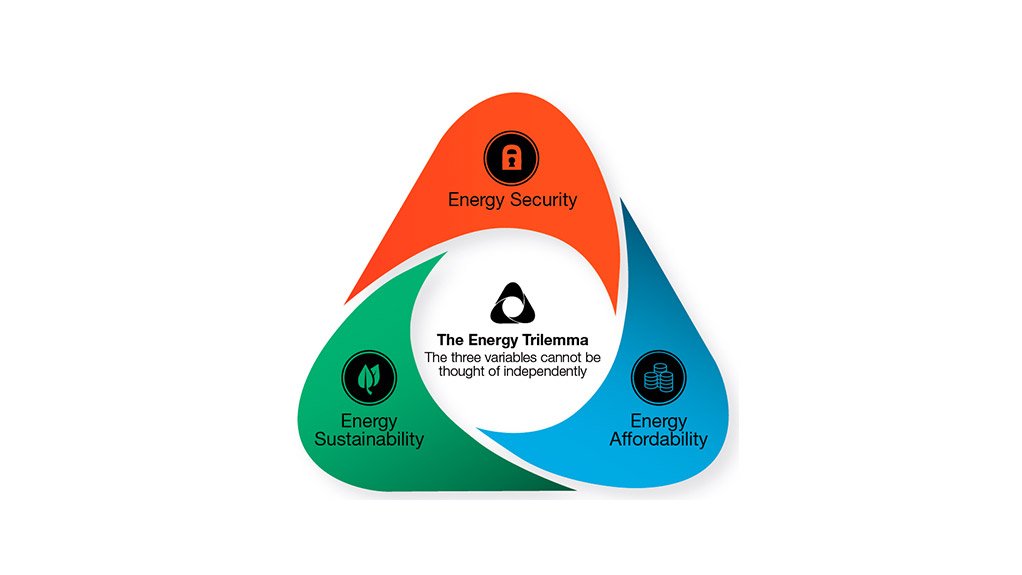The Energy Trilemma – important lessons from recent events
With COP27 in Egypt coming to a close, there is broader acceptance of the role for nuclear power in solving the climate crisis, as it is one of the few electricity generation options that positively impacts all three dimensions of the energy trilemma. What is the energy trilemma? It is the three often conflicting challenges requiring consideration when setting energy policy: energy security, energy equity (accessibility and affordability), and environmental sustainability.

Addressing the trilemma is about creating a balance. How do we ensure there is enough energy (security), at an affordable price (accessibility) while minimizing the impact to the environment (sustainability)?
At COP, as would be expected, the focus is on the environment. We have often discussed the path to net zero emissions and the pathways to achieve this important goal. But over the past few years, a pandemic, together with a war that exasperated an already developing energy crisis in Europe has shown that when it comes to considering the 3 dimensions of the trilemma, security and affordability will always come before the environment. In other words, we are happy to have meetings and discuss how to save the planet, but when the price of energy rises or energy security is put at risk, we treat it as urgent and act.
As the energy crisis plays out in Europe, the first and biggest issue is will there be enough energy to meet the needs of the population. Will they be able to heat their homes in the winter, get to work and feed their families? Of course, energy being available is not helpful if you can’t afford to pay for it. We have seen huge increases in price in electricity markets as well as at the gas pumps. And people are angry about it. Inflation (driven mostly by energy and food prices) are the most talked about issues today in many parts of the world.
And that leaves the environment. It is easy to say we want to protect the environment. But until we see it as urgent (which is easier with more traditional pollutants that we can see and smell), the idea of doing things to make the environment better in the future as carbon emissions rise is a tougher sell. We all want to do it, but only so long as it doesn’t mean we lose ready access to energy (security) and we don’t have to pay more (affordability).
We have seen how people behave from the recent pandemic experience. The desire to do what may be necessary, from the extreme (lock downs) to the more benign (use of masks or staying at home when sick) is limited. Even with a daily death count, people have been left exhausted and their willingness to take even the most basic precautions has mostly disappeared. So, if we struggle to make an effort when we see the impact of a disease on our society every day, what are we going to be willing to do to protect the environment 20 years or more down the road?

More traditional environmentalists see a path that must include doing without. Suffering is part of the penance we need to pay for destroying the environment. Turn down the thermostat in the winter (or up in summer), don’t use our cars as much, change our eating behaviour, are all ways to use less energy and show that we are willing to sacrifice for a better world. We are not saying we shouldn’t do these things. They all help but they will never be enough to reach our climate goals. People are not motivated by sacrifice. They are driven to try and make their lives better and energy is key when it comes to improving quality of life.
Hence the role of nuclear power. It can provide energy security due to its very high fuel energy density and its reliability, operating 24/7 at capacity factors of 90% or more. It is economic and helps keep electricity rates low. And most of all, it has the lowest carbon footprint of any low carbon technology.
Given the choice of higher price energy, not enough energy, or cheaper abundant dirty energy, we will pick dirty energy every time. If we really want to solve the energy trilemma, we need solutions that provide abundant, reliable economic, clean energy. We need nuclear power.





1 Comment
Teodor Chirica · November 19, 2022 at 2:10 pm
Thanks Milt! My observations regarding the 2021 Trilema Index published by the World Energy Council are: 1. Top 10 Trilema performers includes 14 countries, out of which 9 are operating nuclear reactors (SE, CH, FI, UK, FR, CA, DE, US, ES) 2. Top 10 Energy Security includes 10 countries, out of which 7 are operating nuclear reactors (SE, FI, CA, UA, RO, SI, CZ 3. Top 10 Energy Equity includes 15 countries, out of which 4 are operating nuclear reactors (UAE, CH, US and UK) and 4. Top 10 Environmental Sustainability includes 10 countries out of which 5 are operating nuclear reactors (CH, SE, BR, FR, UK)! Quite good performance, in the context in which the growth rate of nuclear energy is relatively low!
Comments are closed.